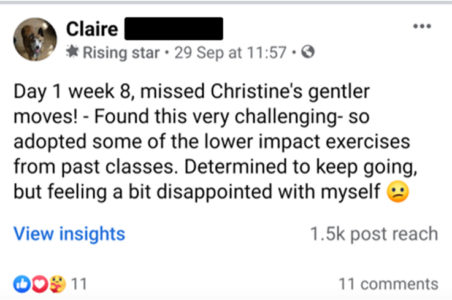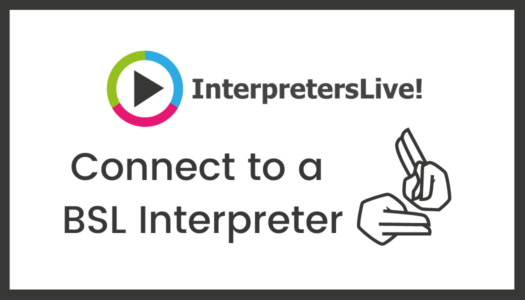Facebook groups
Whilst there is a myriad of digital platforms you can choose from to build an online community; this is our guide to using Facebook groups to support people to be active. Facebook groups offer some great functionality and tools allowing organisations to launch, create and grow an online community of engaged people.
Facebook groups are online communities available for people to join, allowing them to interact with one another based on a common interest, affiliation or association. Facebook groups may be open to anyone, or joined by invitation only, and allow members to create and contribute to building an online community by promoting, sharing and discussing common topics.
From a sport and physical activity perspective, we’re particularly interested in the role Facebook groups (and online communities) can play in encouraging like-minded people to come together, share, discuss and support one another around a common interest such as trying to improve fitness or physical health.
While Facebook groups are for like-minded people who share a common interest (such as trying to improve fitness or physical health), Facebook pages are more similar to personal Facebook profiles; usually created by businesses or organisations seeking to promote themselves publicly through social media.
Facebook groups are likely to have more of a forum feel with the same prominence given to posts by both group members as those made by admins and usually a healthy discussion thread in each post – which also enjoy a higher priority in the News Feed vs Facebook pages, meaning that reach is more favourable.
Although Facebook pages were once a sure-fire way to gain exposure for your organisation or club; posting updates to your followers as a quick and simple way to convey your message without the need for costly advertising, nowadays, the sheer number of pages vying for attention is overwhelming. On average, Facebook users follow at least 70 pages.
This competition, combined with various algorithm updates that favour posts from friends and family, results in very few of a page’s fans seeing its content. The average reach for a page is currently just six per cent of fans!
Another challenge Facebook pages have faced in recent years is dramatically falling levels of engagement – people simply do not like, comment and share page content to the degree they did previously.
Above all, in a sport and physical activity context, Facebook groups feel like far safer places for users to engage within, therefore, interaction levels are higher than Facebook pages and often result in a more motivated and better supported online community.
Facebook groups have a number of features, most of which are unavailable on pages, which contribute towards enhancing the member experience, and supporting people to be more physically active.
These include:
- Mentorship programme for peer support
- Social learning units which enable you to host a curriculum of training resources in one familiar and easy-to-use platform for free
- The ability to help people learn new things through video or written content in these social learning units (particularly useful for organisations involved in getting people active), and the ability to track progress throughout is invaluable and offers a level of functionality normally associated with purpose-built, paid-for platforms
- Multiple features for video including the ability to upload pre-recorded video, create Facebook Live video for live broadcasting which can also be archived and the new Messenger Rooms which provides a Zoom-like experience for group members
- Post formatting in the form of page mark-up enabling you to prettify your posts with headings, bullets, bold, italics and more
- Topics which enable posts to be organised into categories
- Polls to help you carry out member research as well as aide engagement
- Data capture of new members via a question and answer tool (you can even collect email addresses)
- Options on group visibility enabling groups and their content to be public or private
- A search function that helps members quickly find content
- Pinned posts and announcements for important information
The interactive behaviour from members makes groups a great option for supporting people wanting to become more active. The more motivation, support and encouragement people get, the more likely they are to continue their fitness journey.
Groups can be used to build a community around a given topic, such as getting into running, and then enable easy connections with others. Members are encouraged to perform the activities whilst the group creates inspiration and motivation as well as a support network.
The ability of groups to show other people “like me” enjoying activities through the posts they share are also inspiring:
Peer support is also crucial in helping get people over set backs and frustrations:
Groups also provide a place for members to share their successes:
Group members will also respond to FAQs and even relatively obscure questions that might otherwise bog organisers down:
Facebook groups case studies
For the reasons outlined above, online communities formed through Facebook groups can be a fantastic resource to help support people to be more active. The case studies we cover below provide some great examples of organisations that have supported their target audiences to become more physically active and maintain these habits over a long period of time.
Couch to Fitness is a nine-week National Lottery funded home exercise plan for beginners, developed by Our Parks with backing from Sport England, to help people who need extra support and motivation to increase their physical activity levels.
London Sport worked with Our Parks to set up a Facebook group to make it easier for people starting the programme to connect with other users.
It enables Our Parks to create exclusive content for members including live workouts, Q+A sessions with the instructors and exercise variation videos to give people alternative options for the more difficult moves.
The group has over 5,000 members who have been sharing their experiences and supporting each other on their journey to being more active.
Our Parks founder Born Barikor said:
“The Facebook group has become an integral part in helping communities come together and share their successes from the programme. It has become a place where Parkers can offer support to each other and week on week, we can see this community of Parkers growing as more people take part.”
Couch to 5K is an app developed by Public Health England and BBC Get Inspired that guides people through a running plan and is designed for absolute beginners.
The Couch to 5K UK Facebook group was created in 2019 by amateur runner Sian Gomersall and two friends who decided to create a dedicated Group for participants to post about their running journeys and support each other.
It aims to help support people through the Couch to 5K programme as well as being a place they can continue their running journeys after they graduate.
The Couch to 5K admins find there’s no need to create content as members post regularly and there is plenty of peer support for whatever is posted. The main Admin role is moderation – checking that members are not spammed with promotional content.
Sian said:
“The main success of the group is how many people it has helped and helps on a daily basis. If you ask any of our members they’d say that they find it one of the most supportive groups on Facebook. There is no drama, no gossip. Just lots of support!”
Member Karen Wiv (49) said:
“The support and encouragement I have received from complete strangers is phenomenal. People help people, we encourage and we learn from others. It’s a great space, and it’s a pleasure to login to the group every day. So inspiring and motivational.”
Let’s Move is a new programme led by Versus Arthritis for people with arthritis who want more movement in their lives.
The accompanying Facebook group, Let’s Move Versus Arthritis provides members with all the latest digital content including expert tips and advice, myth-busting information as well as a range of movement sessions.
The group, which launched in November 2020, has over 2,400 members. There is high engagement from members who are encouraged to share their stories, personal aims and experiences with others.
Poppy Macleod, Physical Activity Digital Producer at Versus Arthritis said:
“It’s been brilliant to be able to offer this group as it provides a unique source of peer support for members. This in turn can be a great motivating factor and we’ve seen it help members to feel confident in taking the step to incorporate movement into daily life.”
Webinar: how to use Facebook groups to help people become more physically active
We’ve partnered with the Digital Marketing Hub from CIMSPA and Sport England to create a webinar on using Facebook Groups.
- Sign up for a free account here: www.digital.cimspa.co.uk
- Access the webinar from London Sport here









